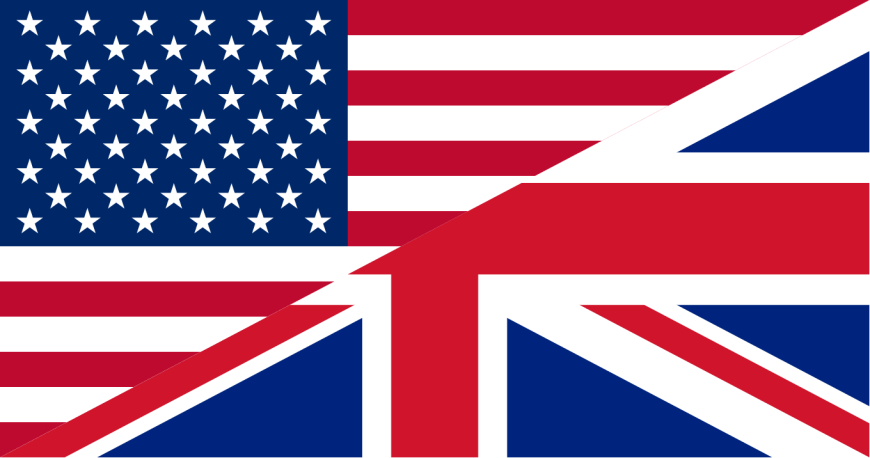There is a lot of discussion in respect to the British accent and American accent. Which the most correct? Which is the best to communicate? Which is the easiest to understand and learn? These are just some of the questions that arise and there is not a definite answer to any of them.
Today we are going to focus on the pronunciation. Have you ever been confused by the difference between the British and American accent?
To shed some light on this subject. We must compare what is known as “Oxford English” that is, the “Received Pronunciation” with the “Standard American English” which is the most common accent in the United States.
We are going to talk about certain ways in which they differ and things that you need to consider before learning English.
Are you ready to find out the differences between the British and the American accent?
1.Intonation
This is the most obvious difference. In the United States, English speakers talk very slowly and much more monotonously.
However, the English are much more expressive and they lengthen the vowels a lot more. This makes it easier for those who are learning English to understand.
Improving your listening comprehension is a lot easier when confronted by a British accent.
2.Vowels
Americans tends to simplify their language, specifically the pronunciation of vowels.
British English has 12 vowel and diphthong sounds, while American English eliminates the odd ones.
- The short ‘a’ in words such as cup is replaced by the sound ‘schwa’ or /ə/ which is the neutral vowel. This ‘a’ is pronounced as the ‘i’ in animal.
- The sound /ɒ/ which can be found in words such as ‘what’ or ‘box’. Americans replace it with an open ‘o’ or a long ‘a’.
- Diphthongs that end in ‘schwa’ do not exist in the American accent. The diphthong /ɪə/ that is found in the word ‘beer’ would be pronounced /bɪr/.
3.The pronunciation of the letter ‘R’
This is the most visible difference between the British accent and the American accent. American English has what we call the ‘rhotic’ pronunciation of the letter R.
This means that the “r” is pronounced at the end of the syllable, for example in the word art.
According to the ‘Received Pronunciation’ standard, the ‘r’ must not be pronounced and the vowel before it must be emphasised more. A good example of model English would be the word car which is pronounced “Caa” it may sound a bit strange, but this how the British pronounce it.
Check out some of the best British series and see for yourself.
4.The pronunciation of the letter “T”
Here the opposite happens to the letter ‘r’. The British pronounce the letter ‘T’ clearly at the end of each word. A good example of this rule is the word “out”.
Americans usually turn this type of ´t´ into a ‘r’. It is not just to do the opposite to the British, it is just how they speak. In order to be an authentic cowboy, the word out would be pronounced ‘awr’.
In American English, when the letter ‘t’ comes before or after another consonant, it is not really pronounced. For example, there is not a big difference between the pronunciation of can and cannot.
5. The words are shortened
It is a very common occurrence in American English. It is what sets it apart from British English. The English take their time with their pronunciation and don´t usually get rid of letters.
Americans lean towards practicality, how strange right? They usually are quick to leave out letters when pronouncing words.
An example would be the word “facts”, which the British pronounce like they are saying the word “fax” however Americans normally ignore the “t” all together.
As we have already mentioned, there are more similarities than differences, but it is important to take them into account when listening to different accents.
We don’t want to finish here without saying that if you are in the process of learning English, take a look at this post that gives advice on how to improve your pronunciation.
If you are struggling with your English speaking, a good idea would be a summer stay abroad, to have an immersive experience in English would help you to improve massively. We have 4 different destinations that you can choose from here at Nathalie Languages.
